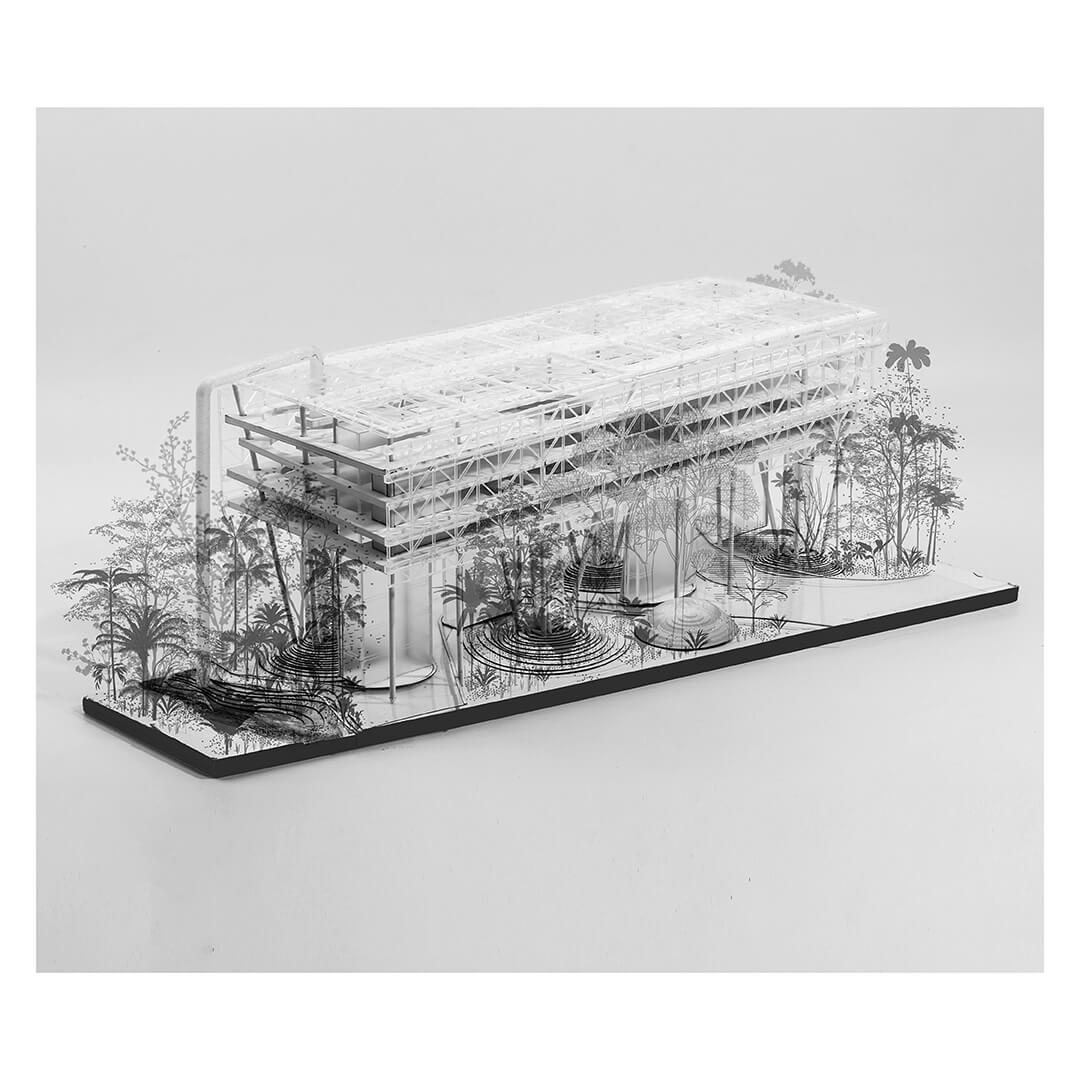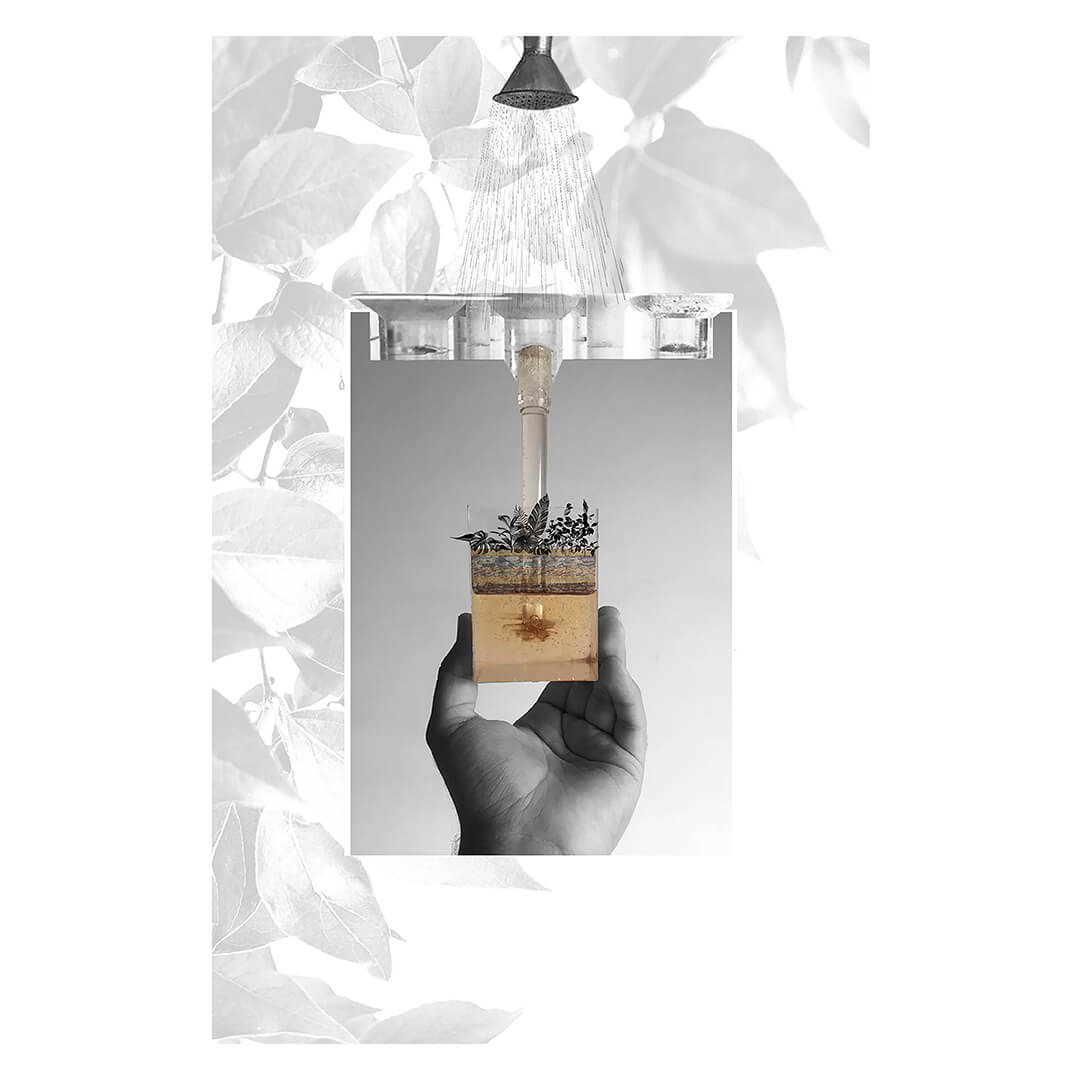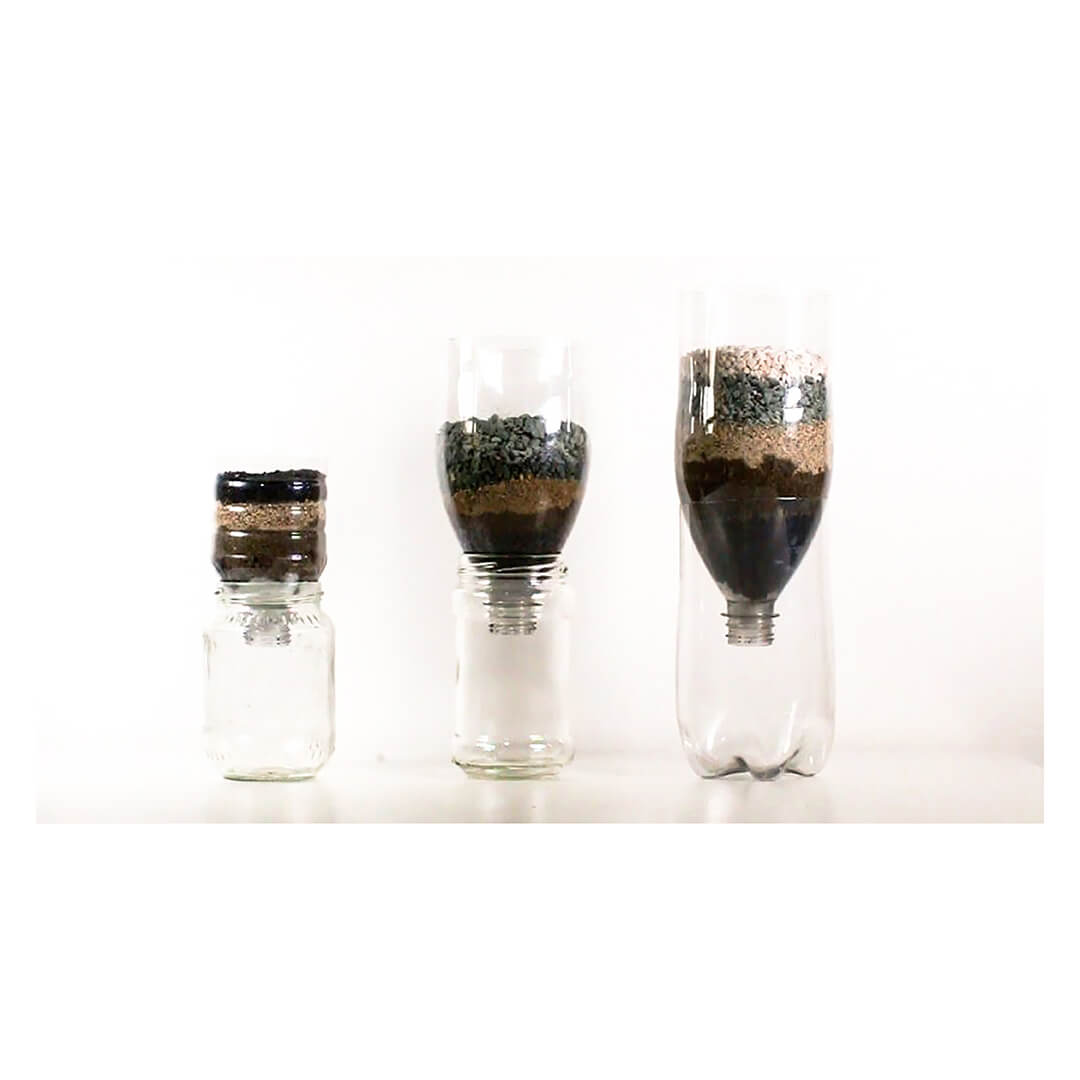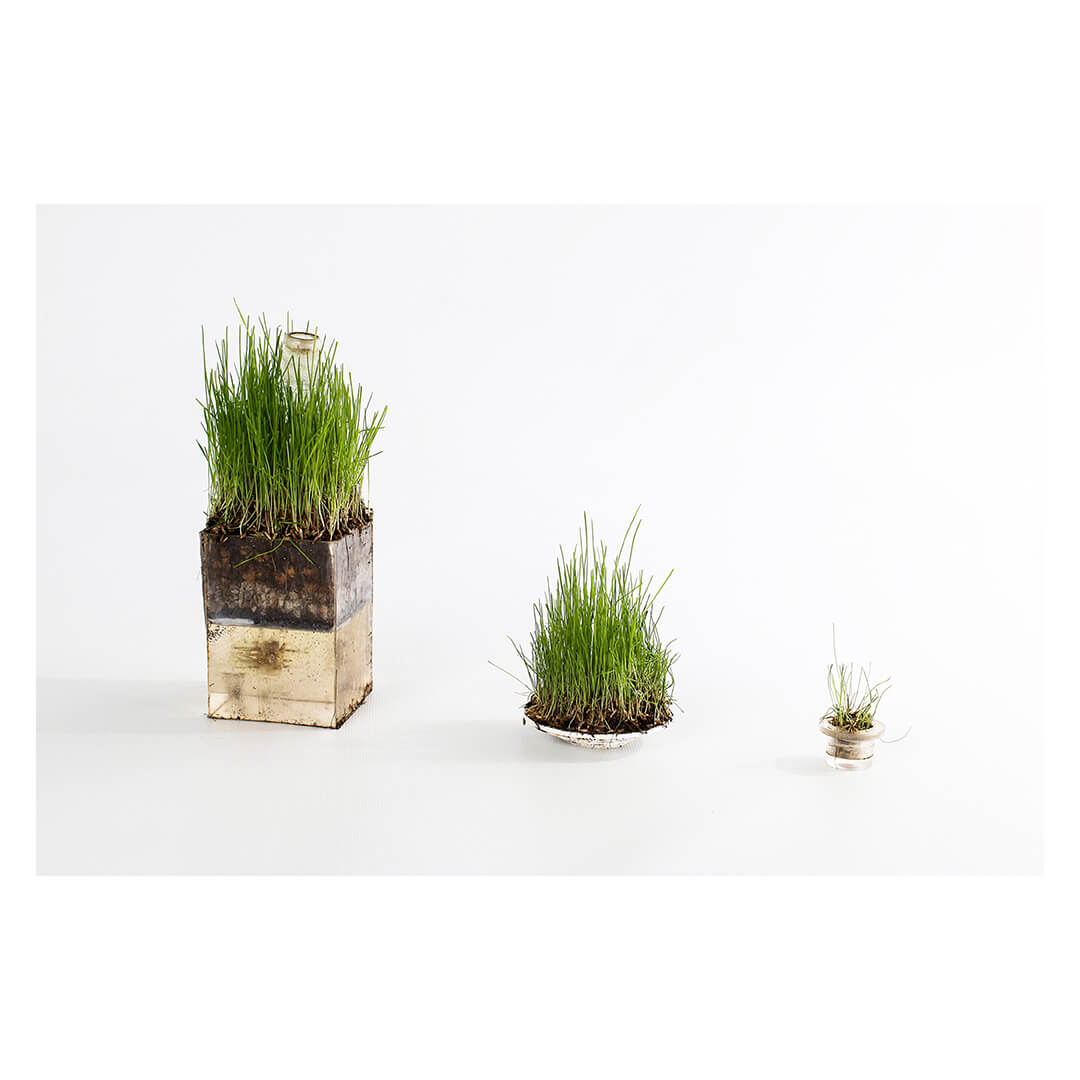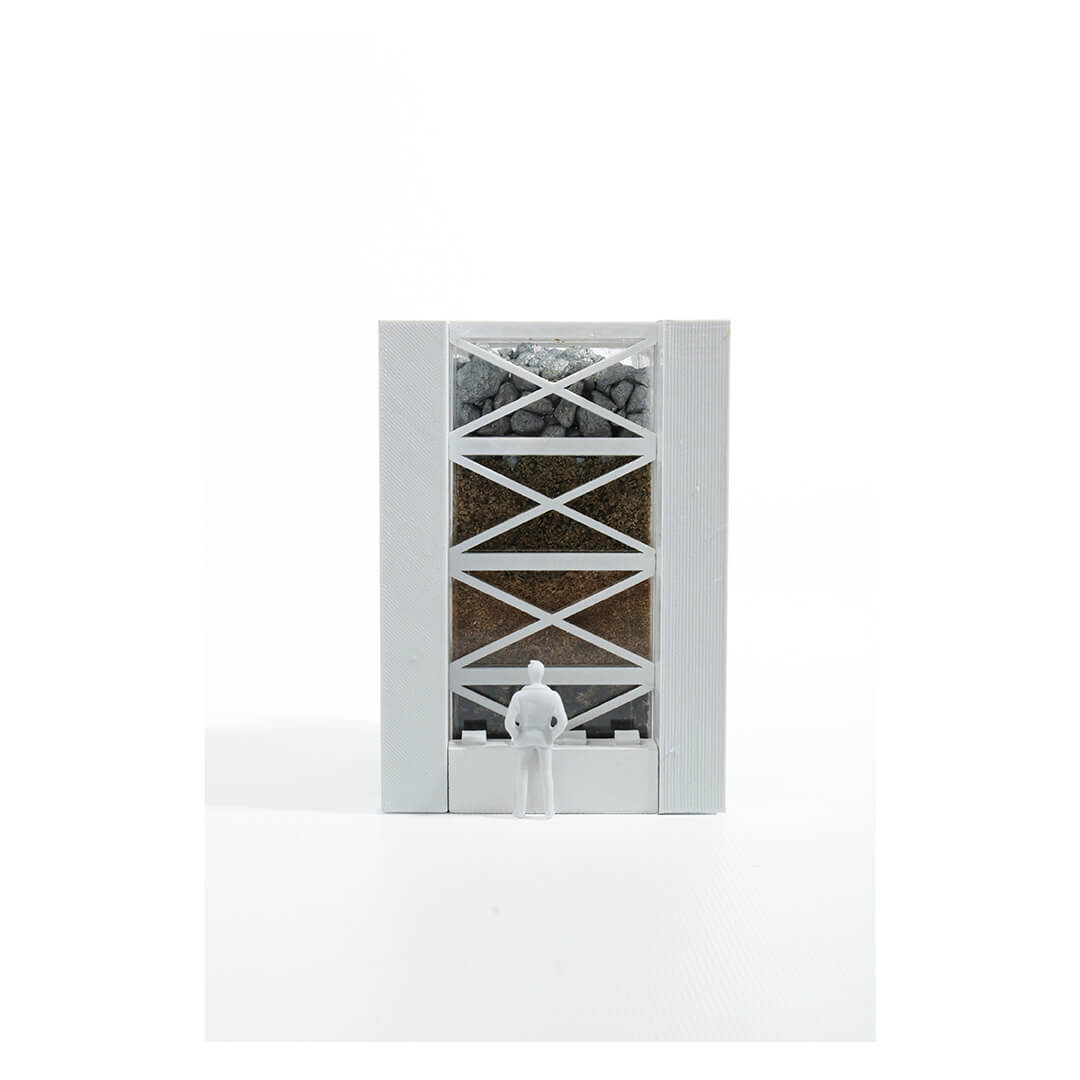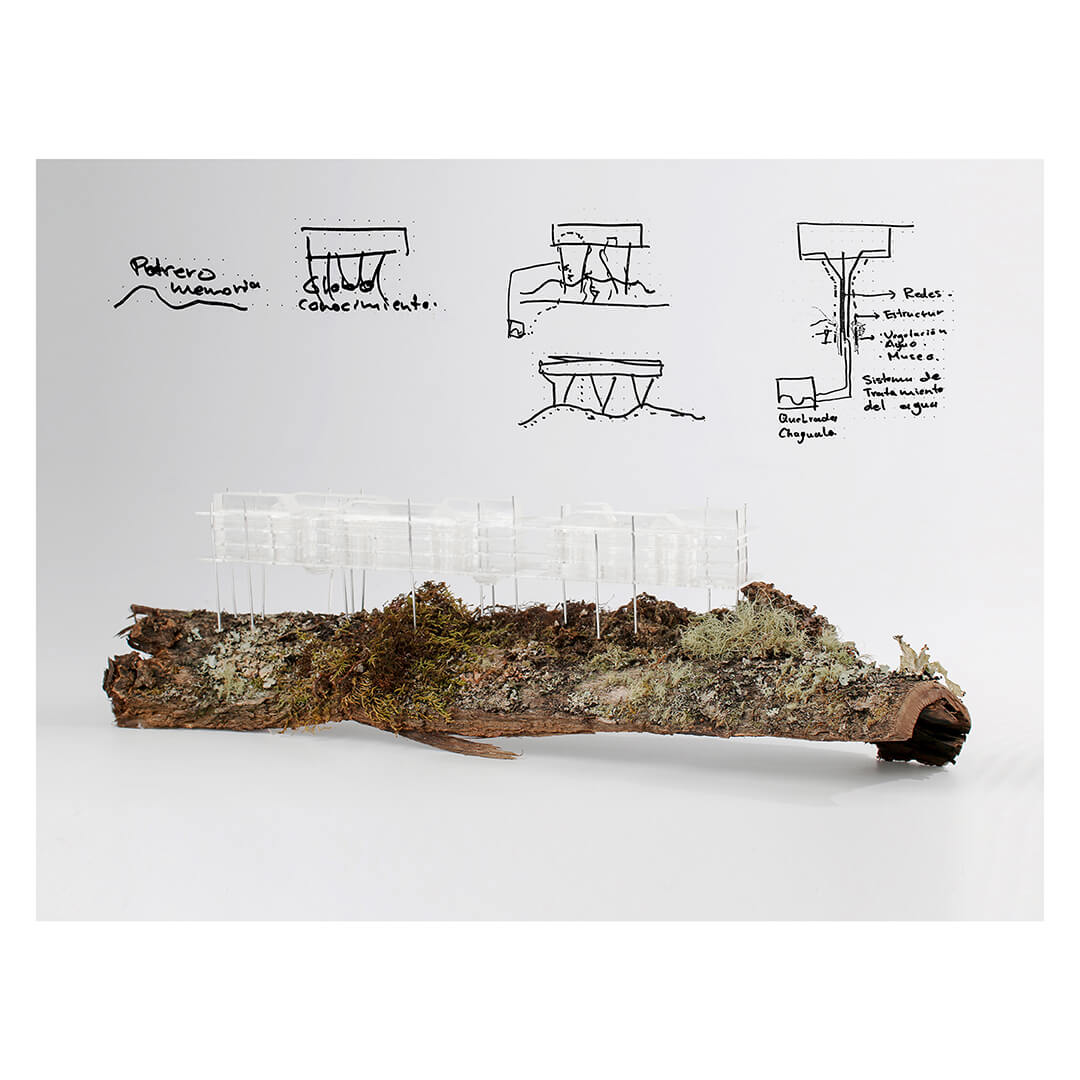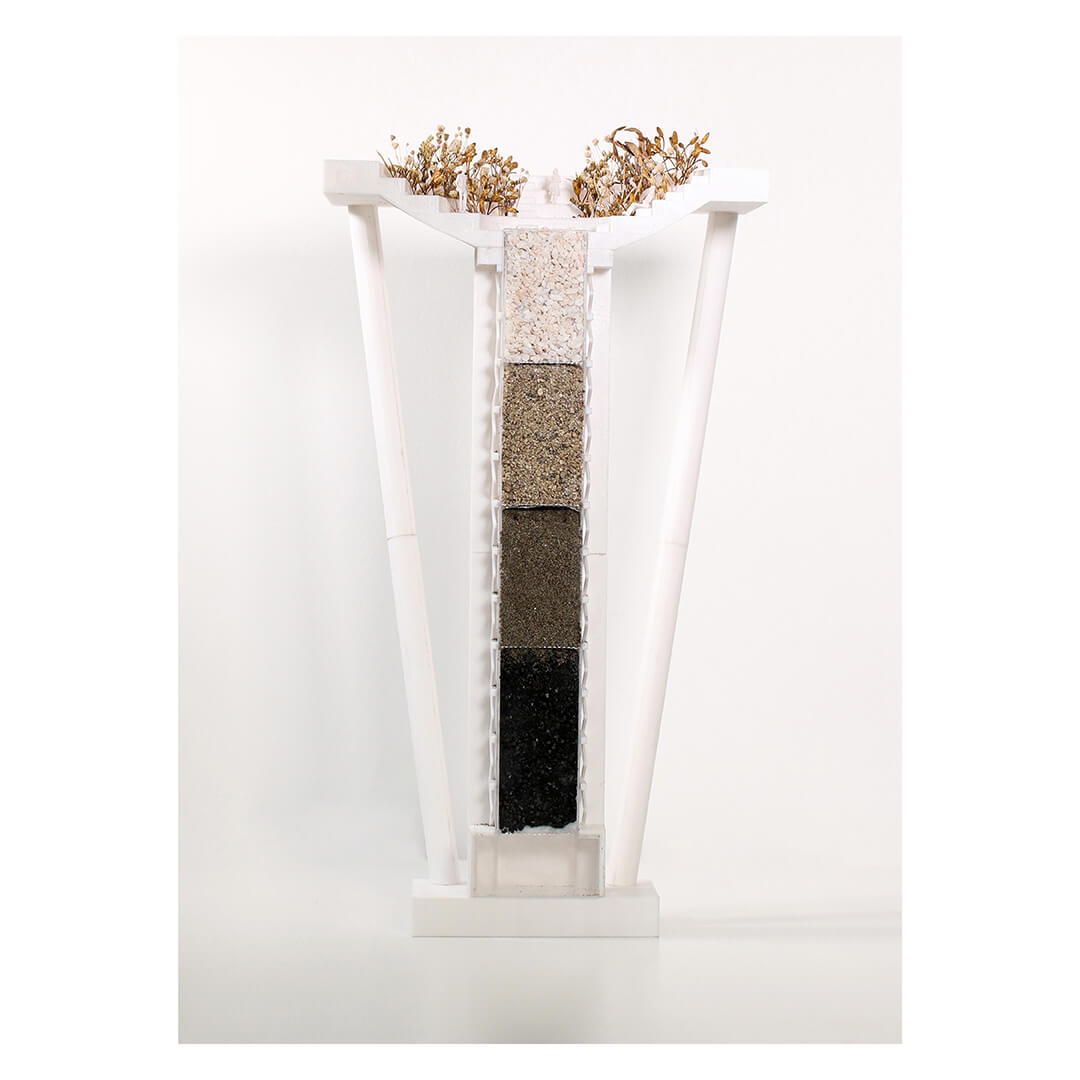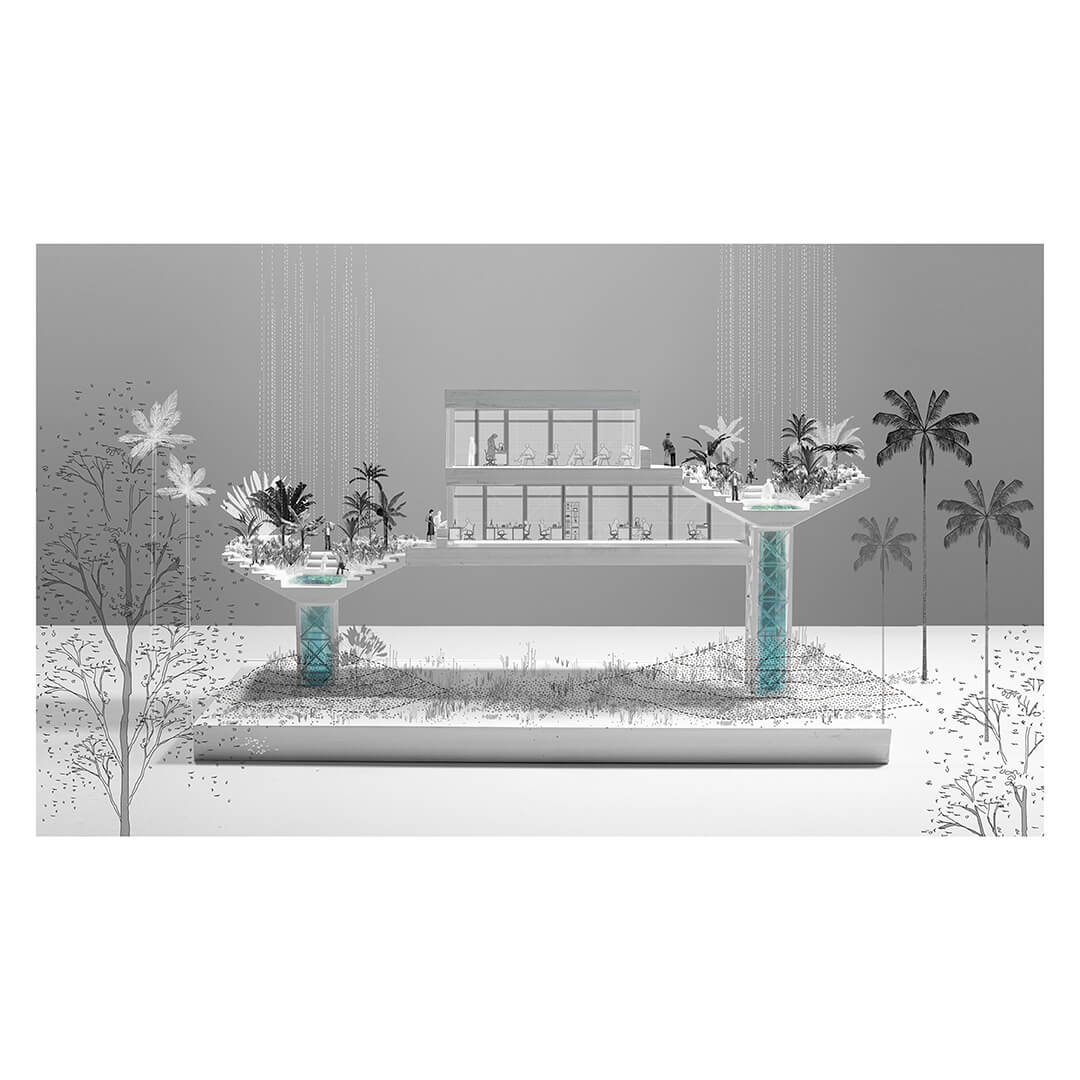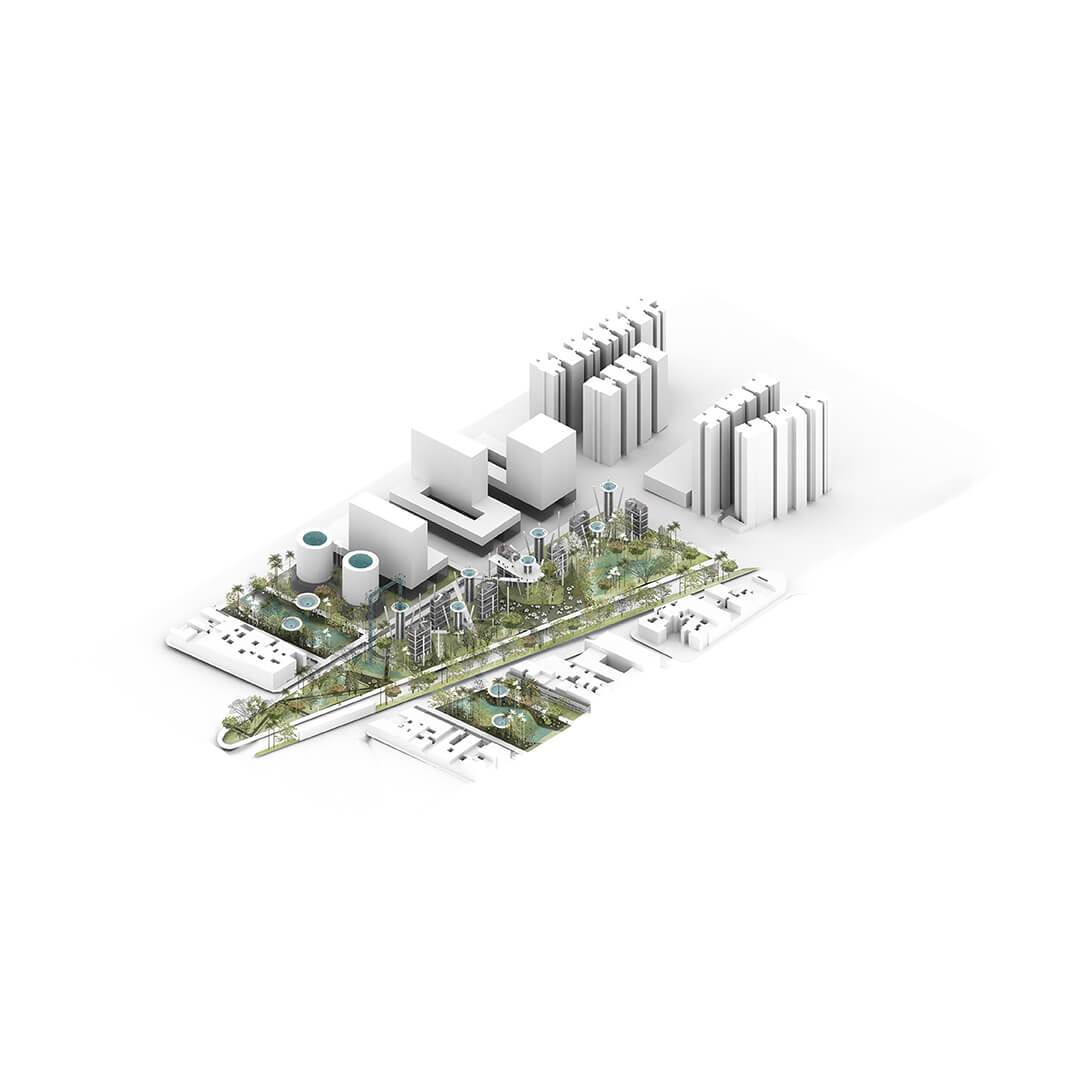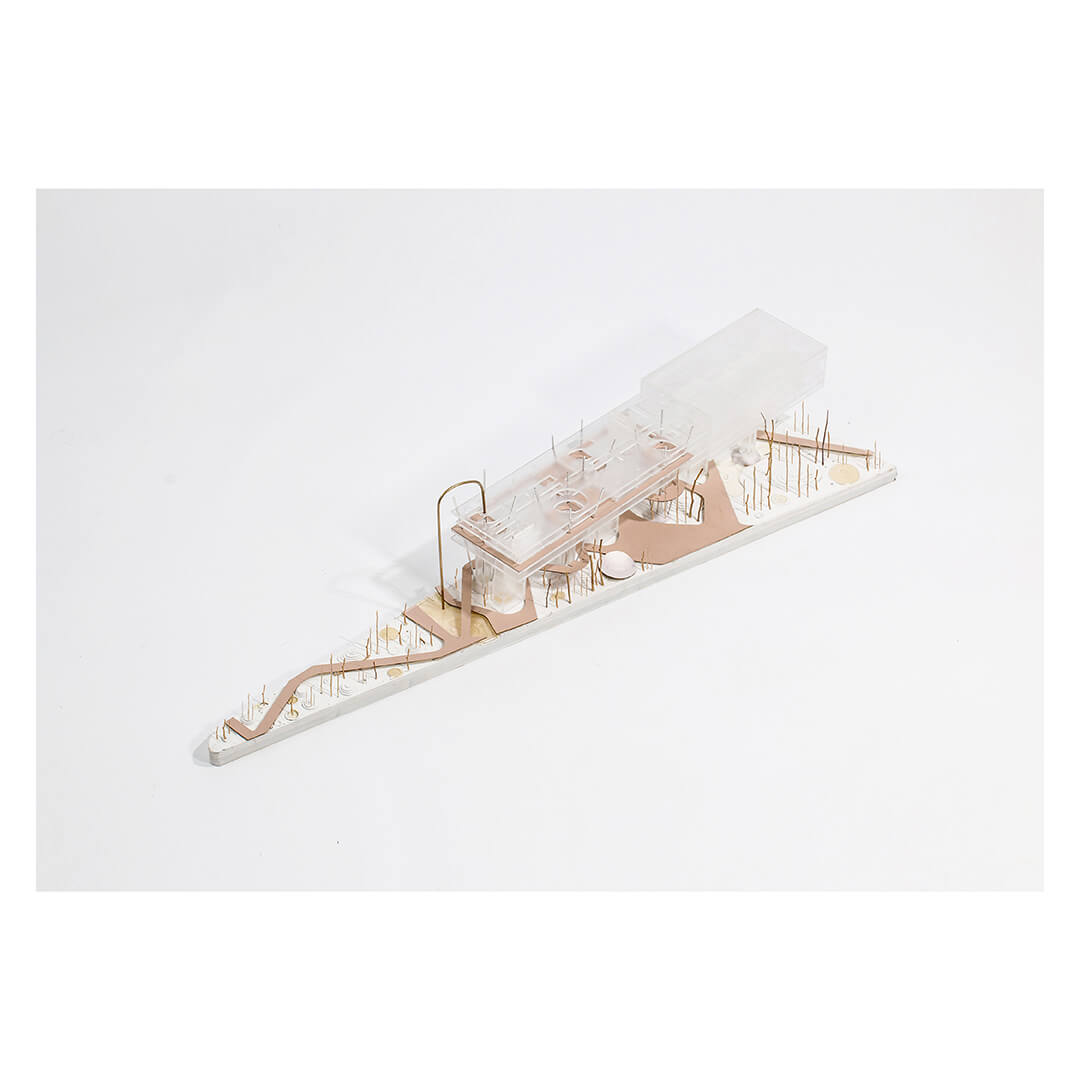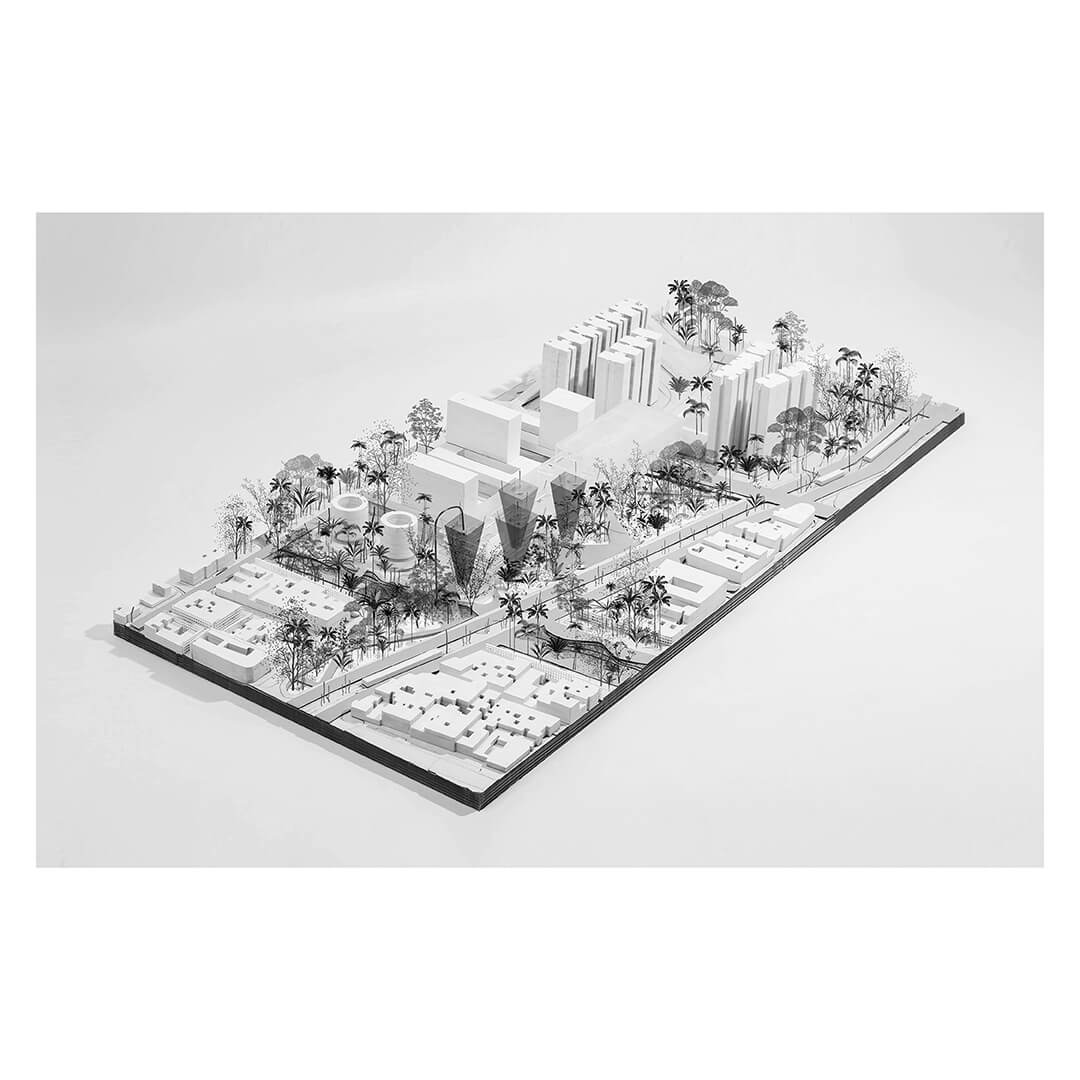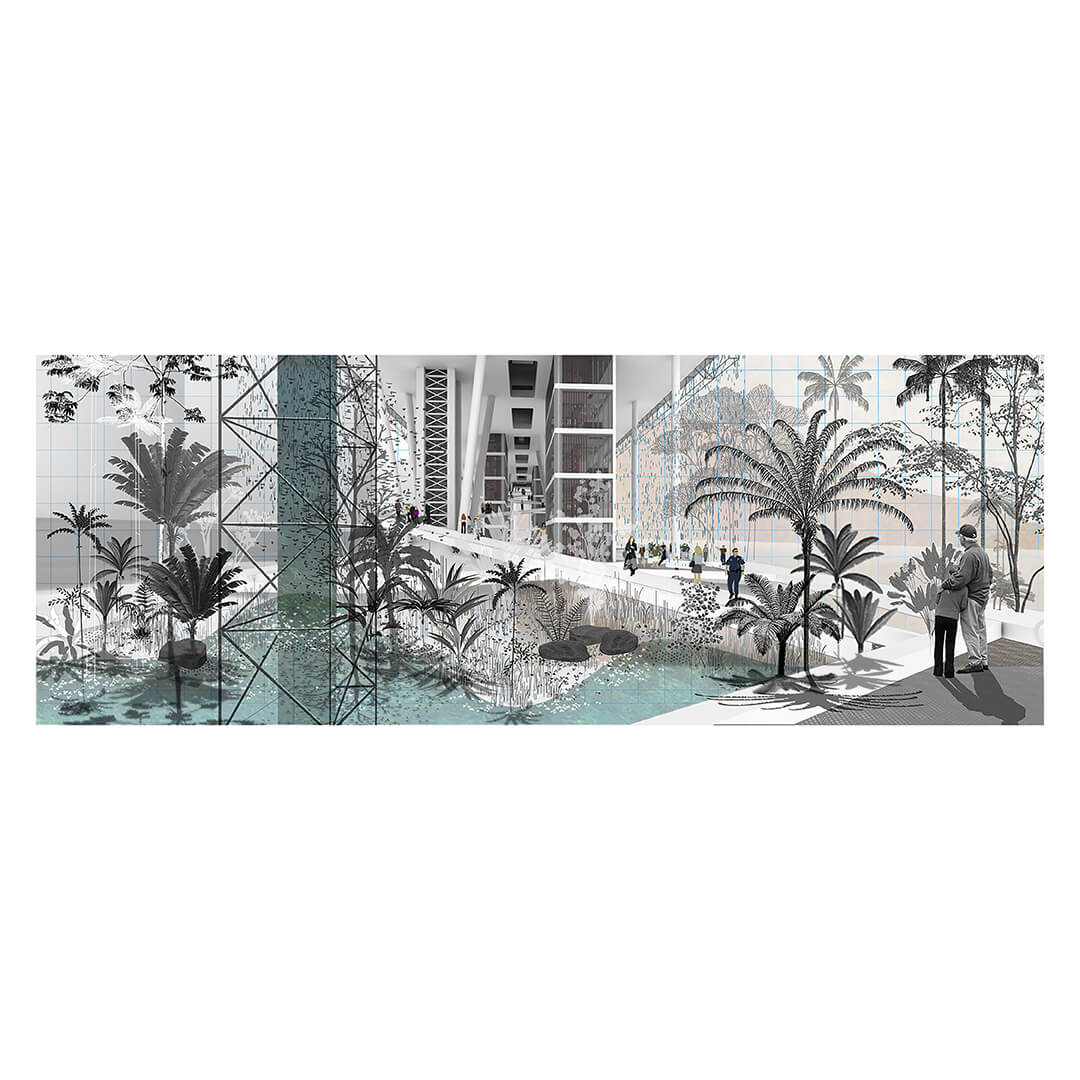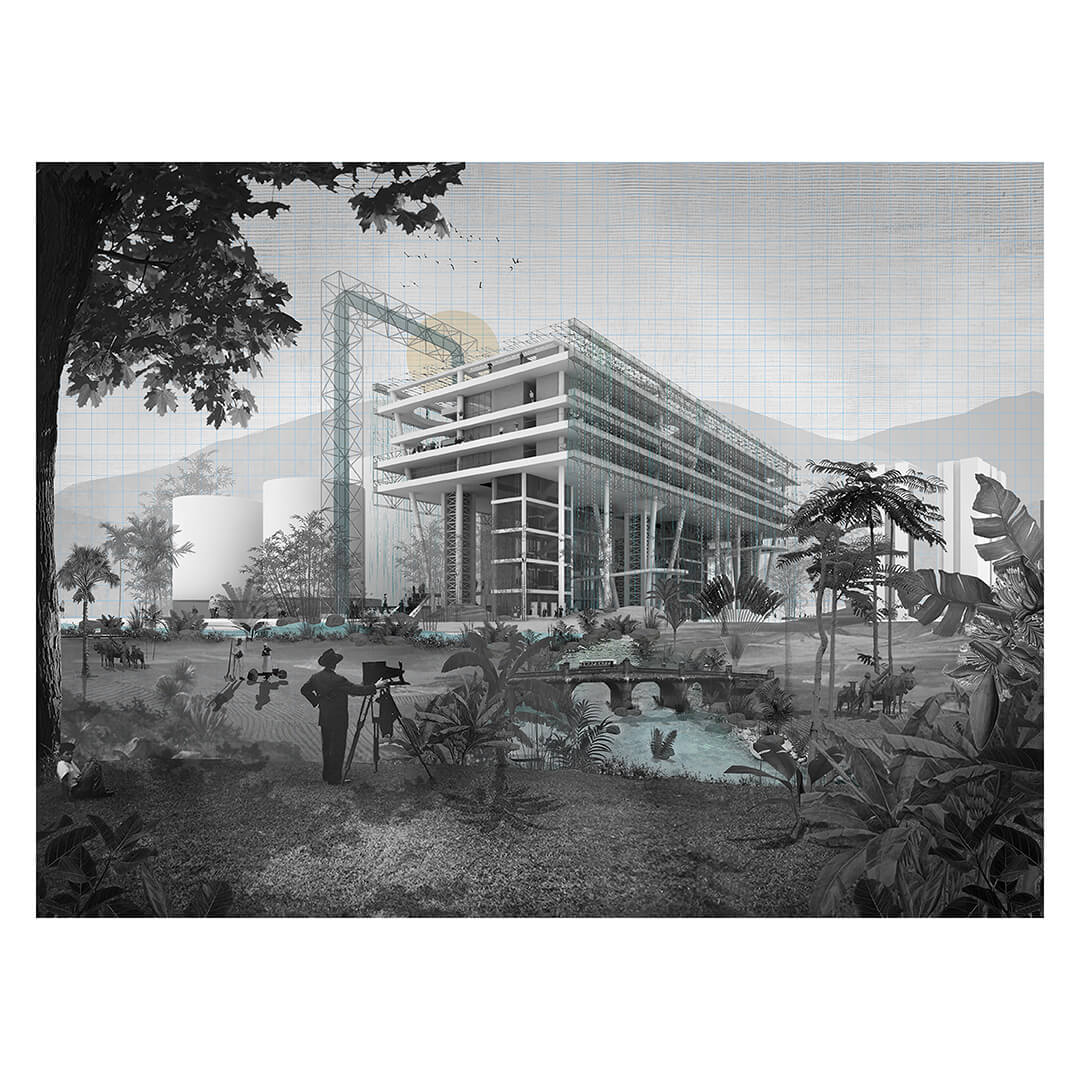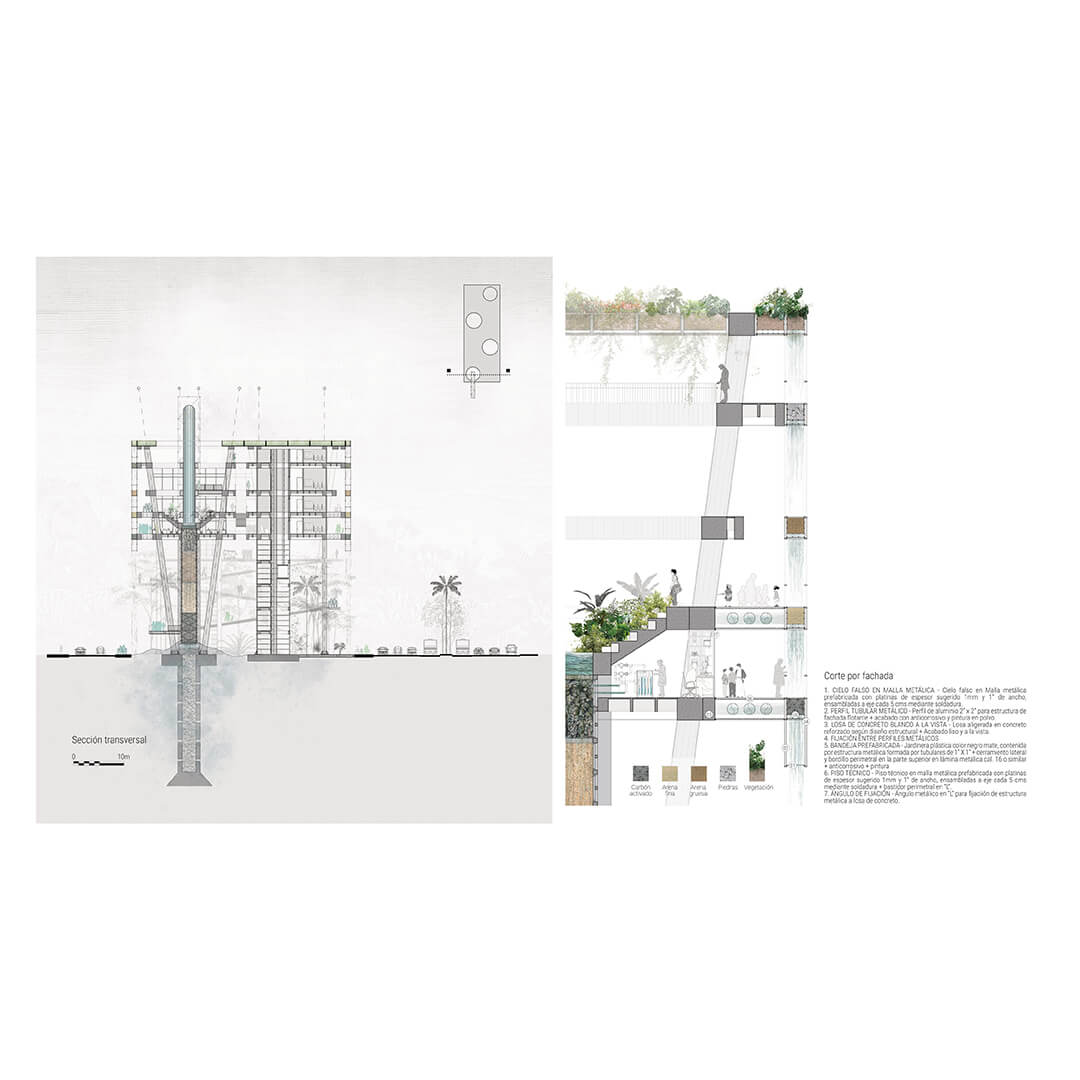Juan Pablo Zuleta Alvarez
“What we do in the next 20 years will determine the future of the natural world and also the future of humanity.”
The history of water is the history of human beings on planet earth. Every form of life on the planet was made possible by the presence of this element and with it that of our species. Through time, man has sought to domesticate the resource, understand its origin, its cycle, its composition and possible states. In the process, various management systems emerged, created with the sole objective of ensuring the supply of growing societies: a matter of “survival”.
Today, we are aware of how sterile the anthropocentric vision with which the resource was exploited was, we begin to realize that water is not only for man, and that, in practice, there must be alternatives to mitigate the danger in which there are future generations of all the species that occupy the planet.
Thus arises the Water Infrastructures project that starts from investigating the relationship between the interventions of society with respect to the water component in the city of Medellín, and how this relationship has manifested itself in the urban space at different scales throughout the weather. The project proposes a spatial reinterpretation of water filtration and purification processes and how infrastructures could provide support in understanding the natural cycles of this, taking into account that they are the main tool for sanitation and adequate management of water resources. It is here where science emerges as an alternative and reconstructing the political and historical sense that the city’s water heritage represents as the main objective.
Author: Juan Pablo Zuleta Alvarez.
Website: www.infraestructurasdelagua.weebly.com
Location: Medellín, Colombia.
University: Pontifical Bolivarian University.
Year: 2019
